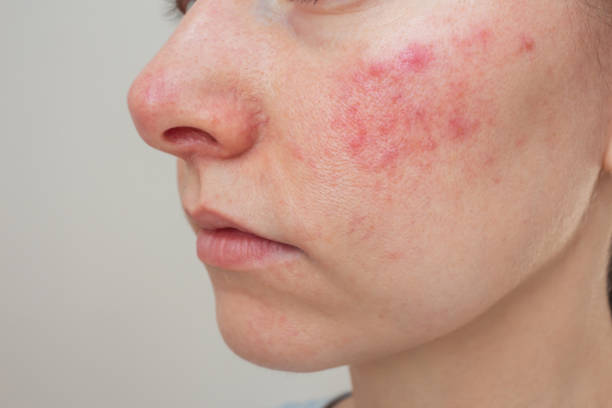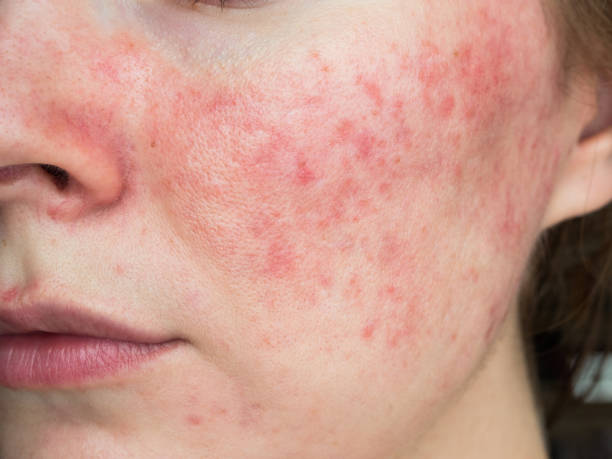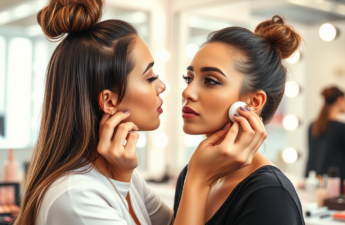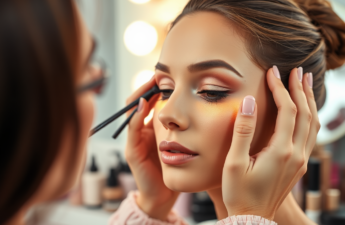Acne and problematic skin conditions are struggles faced by many individuals, from teenagers grappling with hormonal changes to adults dealing with stress and dietary influences. While conventional treatments often include harsh chemicals and prescription drugs, there is a growing interest in natural approaches to skin health. Holistic remedies and lifestyle changes can be effective in managing and improving the condition of acne-prone skin, providing a gentler and often more sustainable solution. In this article, we explore various natural strategies to combat acne and promote healthier skin.
Understanding Your Skin Type
Before diving into the myriad of natural remedies, it’s crucial to understand your skin type. Acne isn’t a one-size-fits-all condition, and what works for one person might not work for another. Generally, skin types are categorized as oily, dry, combination, sensitive, or normal. Oily skin tends to produce excess sebum, which can clog pores and lead to breakouts. Dry skin might have less visible pores but can be prone to irritation and flakiness. Combination skin features a mix of oily and dry patches, while sensitive skin reacts easily to various stimuli. Once you’ve identified your skin type, you can tailor your skincare routine to address its specific needs more effectively.
Natural Ingredients for Clearer Skin
Natural ingredients can be just as potent as their chemical counterparts when it comes to treating acne. Here are some skin-friendly options to consider incorporating into your routine:
- Tea Tree Oil: This essential oil is known for its antibacterial properties, making it an excellent choice for treating acne.
- Honey: Naturally antimicrobial, honey can help to soothe and heal inflamed skin.
- Green Tea: Loaded with antioxidants, green tea can reduce inflammation and decrease sebum production when applied topically.
- Aloe Vera: Renowned for its healing properties, aloe vera can help to calm irritated skin and reduce redness.
- Apple Cider Vinegar: Its natural acids can help to balance the skin’s pH and prevent the growth of acne-causing bacteria.
Incorporating these elements into your skincare routine might involve applying diluted tea tree oil directly to pimples, using a honey mask several times a week, or creating a toner with green tea or apple cider vinegar.
Diet and Lifestyle Adjustments for Healthy Skin
Your diet and lifestyle can have a significant impact on the health and appearance of your skin. To help combat acne naturally, consider the following adjustments:
- Stay Hydrated: Drinking enough water throughout the day can help flush out toxins and keep your skin hydrated.
- Incorporate Antioxidant-Rich Foods: Fruits, vegetables, nuts, and seeds are packed with vitamins and minerals that support skin health.
- Limit Dairy and Sugar Intake: These can trigger hormonal fluctuations and inflammation, contributing to acne.
- Maintain a Regular Sleep Schedule: Lack of sleep can increase stress and hormonal imbalances, exacerbating skin problems.
- Exercise Regularly: Physical activity increases blood circulation, delivering more oxygen and nutrients to your skin while helping to reduce stress.
By making these changes, you not only support your overall health but also create an optimal environment for your skin to heal and thrive.

A Holistic Approach to Skin Care
Embarking on a holistic journey toward clearer skin means considering all aspects of health. It’s not just about topical treatments but also about nurturing your body from the inside out. Stress reduction techniques like yoga, meditation, or deep-breathing exercises can lower cortisol levels, which, in turn, may reduce the severity of acne. Developing a consistent skincare ritual that combines natural ingredients with relaxation can enhance effectiveness. Remember to be gentle with your skin, avoiding over-exfoliation or harsh scrubbing that can lead to irritation and further breakouts.
Patience and Consistency: Key to Natural Skincare
It’s important to set realistic expectations when transitioning to natural skincare methods for acne. Results will not be instantaneous, and it can take several weeks or even months to see significant improvement. Patience and consistency are vital; rummaging through your pantry for a natural remedy won’t clear up your skin overnight. Establish a daily routine, keep track of what works and what doesn’t, and be open to adjusting your approach as your skin responds to treatments. Remember, it’s a journey to finding what resonates with your unique skin type and lifestyle. Consulting with a dermatologist or a naturopathic doctor can also provide valuable insights and guidance.
Conclusion
In conclusion, combatting acne and skin problems naturally involves a comprehensive approach that includes understanding your unique skin type, utilizing natural ingredients, adjusting diet and lifestyle, embracing a holistic view of skin care, and practicing patience. By integrating these components into your life, you can work towards clearer and healthier skin while also promoting overall well-being. The path to acne-free skin naturally is not a quick fix but a commitment to nurturing your skin with gentle care and attention it deserves.
FAQs
1. Can I use essential oils directly on my skin? Essential oils should always be diluted with a carrier oil before applying to the skin to prevent irritation. Test a small area first to ensure there is no adverse reaction. 2. Do natural remedies work for severe acne? While natural remedies can be helpful for mild to moderate acne, severe cases often require medical treatment. However, natural methods can complement medical treatments and support overall skin health.
3. How long does it take to see results from natural acne treatments? It can take several weeks to a few months to notice significant changes. Every person’s skin responds differently, so patience and consistency are essential.
4. Are there any natural ingredients that I should avoid if I have sensitive skin? Individuals with sensitive skin should be cautious with any new ingredient. Natural ingredients like lemon juice or peppermint can be irritating to sensitive skin, so it’s important to patch-test before using them widely.
5. Can changing my diet really help clear up acne? Yes, diet plays a critical role in skin health. Foods that cause inflammation or hormonal imbalances can exacerbate acne, so adjusting your diet can have a positive impact.



